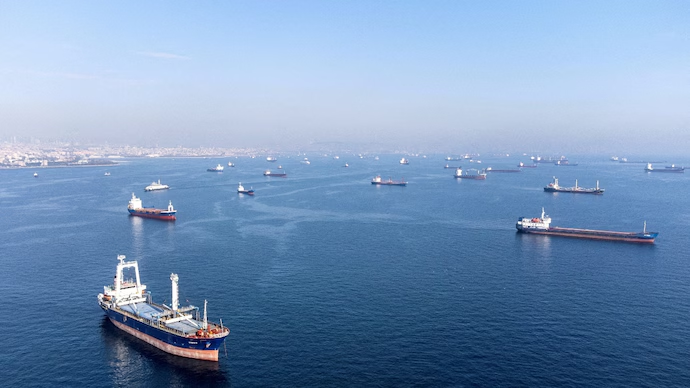Trump-Putin War Deal: Impact on Black Sea Conflict, Russia-Ukraine War, and Global Trade

Russia and Ukraine have agreed to a US-brokered naval ceasefire in the Black Sea, aiming to ensure safe navigation, prevent military use of commercial vessels, and reduce hostilities in the region. This agreement, negotiated under the influence of former U.S. President Donald Trump and Russian President Vladimir Putin, marks a significant shift in the geopolitical landscape.
Black Sea: A Strategic Battleground and Trade Hub
The Black Sea has long been a crucial region for trade, military strategy, and political influence. It serves as a vital economic artery for Ukraine, providing the only access to global markets through its ports. The region also holds immense strategic value for Russia, offering the shortest route to the Mediterranean and the Suez Canal—key to Moscow’s global power aspirations.
Since the onset of the war, Ukraine’s attacks on Russia’s Black Sea fleet have significantly weakened Moscow’s naval dominance. However, with this ceasefire in place, Russia may regain some control over its maritime activities, while both nations secure their ability to export commodities.
Impact on Global Trade and the Grain Deal
The ceasefire revives discussions around the Black Sea Grain Initiative, a crucial agreement that previously allowed Ukraine to export grain despite wartime disruptions.
In mid-2022, Russia and Ukraine struck a deal to facilitate grain shipments through the Black Sea, ensuring food security for nations reliant on Ukrainian exports.
However, Moscow withdrew from the agreement in 2023, citing Western sanctions that limited its own agricultural exports.
The blockade of Ukrainian ports, particularly Odesa, led to global food shortages, with Africa and the Middle East bearing the brunt of the crisis.
The new ceasefire could pave the way for renewed negotiations, potentially easing pressure on global food prices.
Turkey’s Pivotal Role in the Black Sea
Among the six nations bordering the Black Sea—Russia, Ukraine, Romania, Bulgaria, Turkey, and Georgia—Turkey remains a dominant player due to its strategic control over the Bosphorus and Dardanelles straits.
The 1936 Montreux Convention grants Turkey the authority to regulate maritime access, including restrictions on warships during conflicts.
Turkey’s influence over Black Sea security and NATO operations continues to shape the region’s political and military balance.
Russia’s Military Setback and the Shift in Naval Power
For years, Russia sought to maintain military dominance in the Black Sea, using advanced missile systems to create "no-go" zones for NATO allies. However, this control weakened in 2023, when Ukrainian strikes disabled nearly half of Russia’s Black Sea fleet, including the flagship cruiser "Moskva."
While the ceasefire may benefit Moscow, allowing its navy to regroup, it also acknowledges Ukraine’s growing military capability in the region.
What Lies Ahead?
With this Trump-Putin deal in place, the world watches how the ceasefire will hold and whether it will lead to long-term stability in the Black Sea. The agreement’s success could impact:
Global food security, especially in nations dependent on Black Sea exports.
Russia’s geopolitical standing, as it seeks to regain naval strength.
Ukraine’s war strategy, balancing military resilience with economic survival.
Turkey’s regional influence, as it continues to mediate Black Sea conflicts.
While this ceasefire offers a temporary pause in hostilities, the Black Sea remains a contested geopolitical flashpoint, with global implications for trade, security, and diplomacy.


